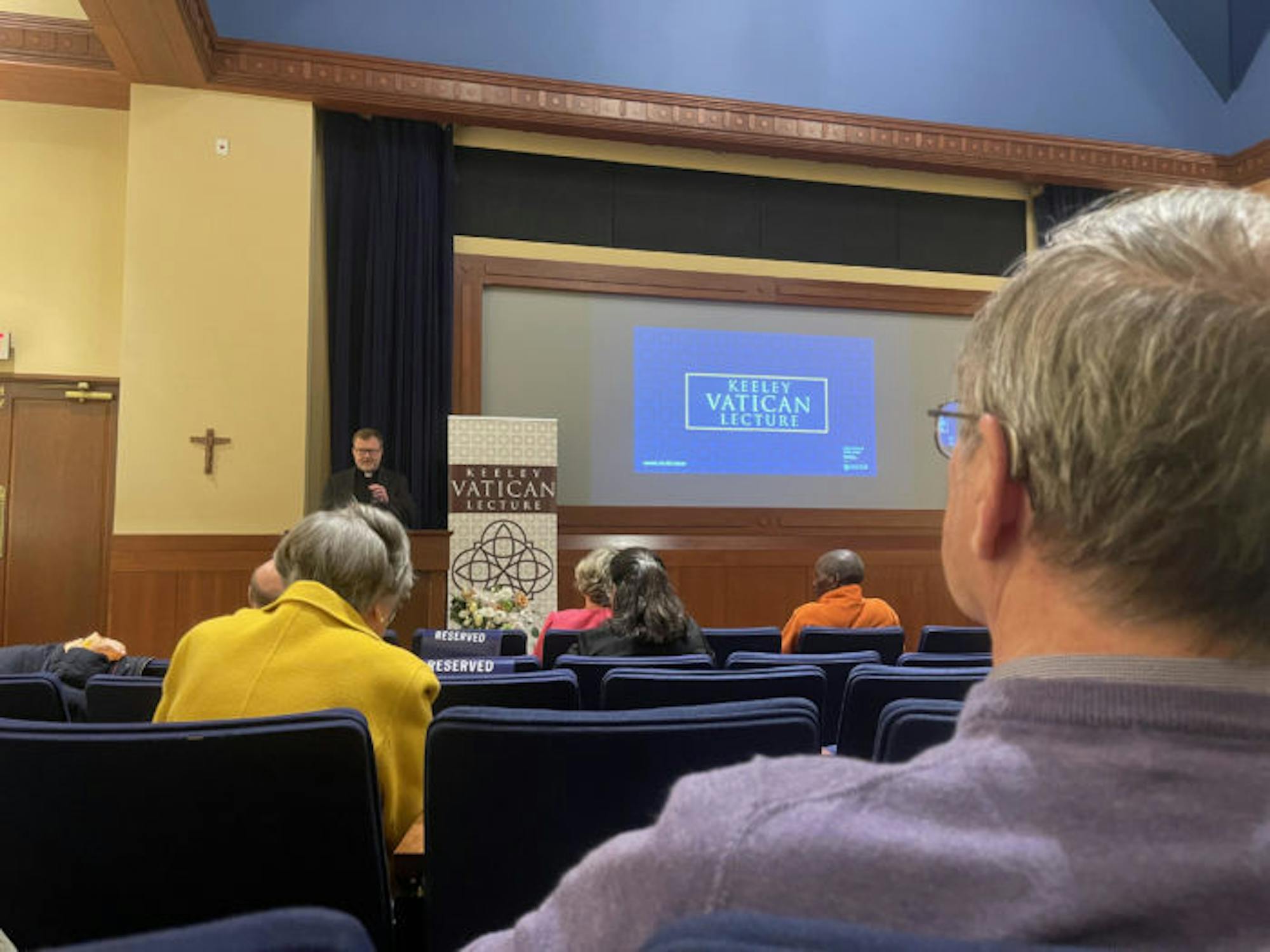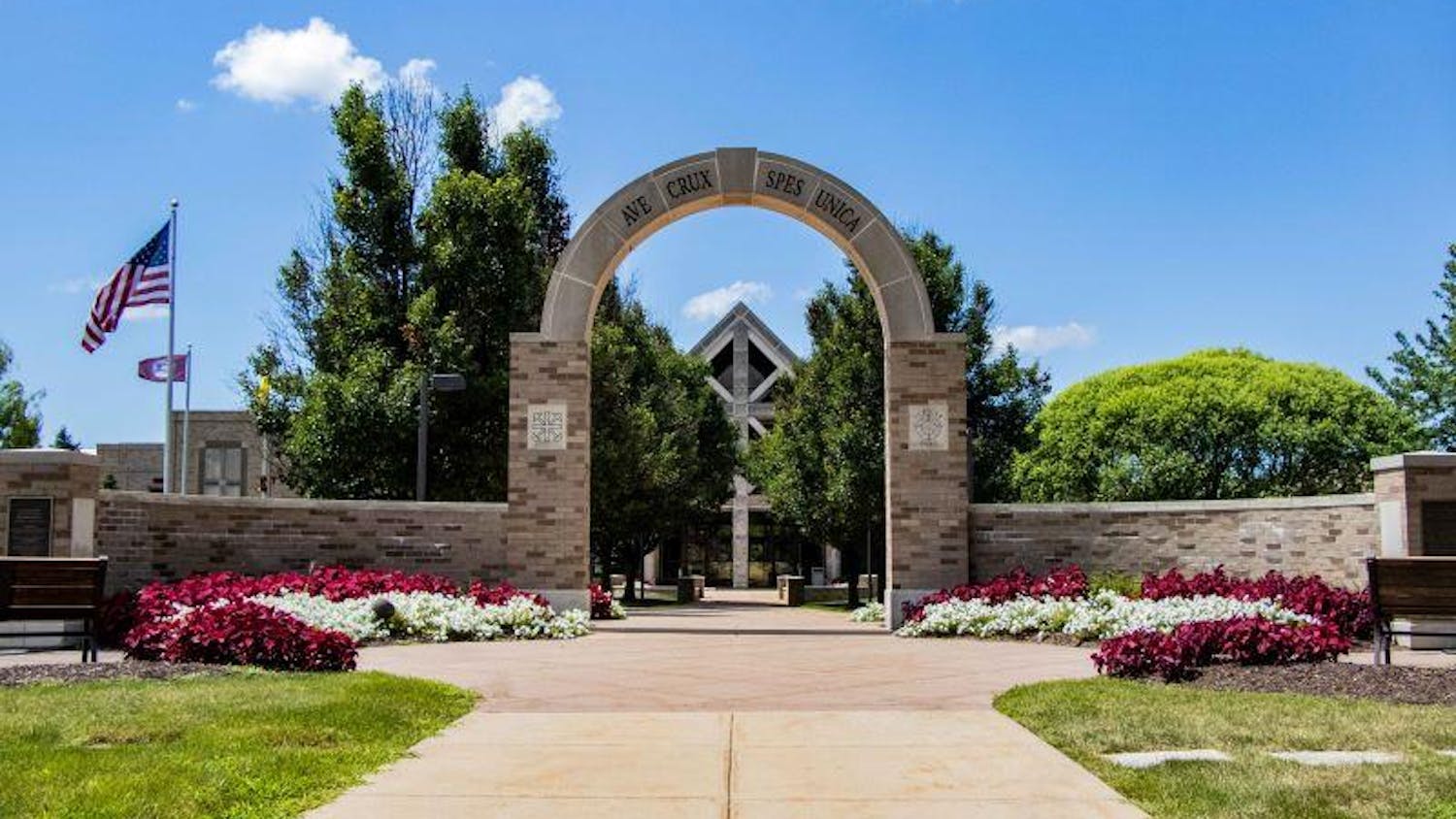Rev. Hans Zollner delivered this year’s annual Keeley Vatican Lecture Tuesday night at the Eck Visitor Center. The annual lecture seeks to deepen “Notre Dame’s connection to the Holy See by bringing distinguished representatives from the Vatican to Notre Dame to explore questions involving Notre Dame’s Catholic mission."
The topic of his lecture was the sexual abuse of minors in the Catholic Church. Zollner is a German Jesuit Priest, a theologian and a licensed psychotherapist who focuses on the prevention and healing of childhood sexual abuse. He's also a professor at the Pontifical Gregorian University in Rome.
Zollner argued that the problem of sexual abuse is prevalent in the Church, plaguing countries all around the globe.
“It is so very uncomfortable, but true, because we don’t realize how much of the trauma of victims of abuse is present in our minds,” Zollner said.
Many people within and outside of the Church are aware of the problem, Zollner said, but he feels that the awareness has not prompted enough action.
“Own the topic, not only as an intellectual exercise, not only as gaining some more insight into some aspect of something you put with your tribe,” Zollner said. “We cannot continue just listening over and over again to the same words, we need to own it and act upon it.”
“That includes that we become aware of our own reactions, the human ones, the administrative ones and the spiritual,” he said.
Zollner said that the victims of these accounts are harmed in extremely detrimental ways. He mentioned that other Catholics also face disgust and struggle with faith in the institution, like the victims themselves. These sincere human reactions make it that much more important to speak correctly about the matter, Zollner said.
Zollner argued that like with many scandals, misconceptions surround the Church sexual abuse crisis. He said that, for one, celibacy is not to blame for the abuse.
“There is no proof that celibacy, as such, leads to abusive behavior. Other components around it, yes, may contribute, but not much”, Zollner said.
Zollner also pushed back on the idea that the problem lies with homosexual priests.
“Again, sexuality as such does not lead to abuse. Other components may contribute to that, but not sexuality in itself,” Zollner said.
Zollner also addressed those who instinctively deny claims of sexual abuse. Whenever sexual abuse is brought up, not even just in the context of the Church, there are people that claim that the majority of these are false allegations. Zollner sought to clear this up.
“I asked the head of the disciplinary sanction, foundation for doctrine. Some time back I asked him, John, tell me how many false allegations come to your desk and he has seen it from 2002 onwards,” Zollner said. “And he replied, literally, very, very few.”
Zollner discussed how people look upon the Church for comfort. Priests set themselves apart from society, Zollner said, but lately, they have let people down.
“You stand for a church that proclaims the gospel of salvation and not of suffering,” Zollner said. “When we celebrate the liturgy, we proclaim something different and people expect that we behave accordingly.”
Because of the attention the issue has garnered, attempts have been made to remedy the problem. There have been new guidelines regarding safeguarding and new laws that have sought to address the crisis. Zollner heralded these recent movements are accomplishments, but he said they are not enough. He called on the Church to change not just its laws, but its attitudes.
“Relatively much has happened over the last years in the Church. But that is not sufficient,” Zollner said. “It needs also a change of attitude.”
“You need to own it ourselves,” Zollner said “Each and every one of us in this room and online should consider for a moment, now or later this evening, what can you do, what can I do, so that we can be a safer place, a safer society and a safer church.”
Annual Keeley Vatican lecture addresses sexual abuse in Catholic Church
Dr. Hans Zollner giving a lecture about the problem of sexual abuse of minors in the church.
Rev. Hans Zollner giving a lecture about the problem of sexual abuse of minors in the church.








